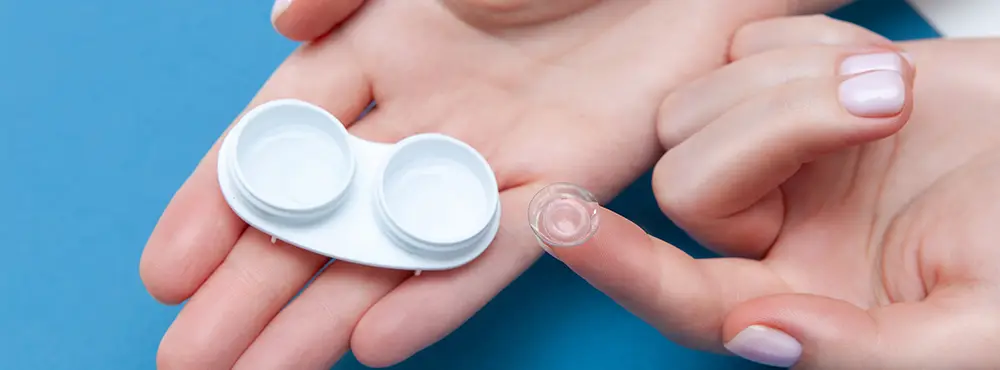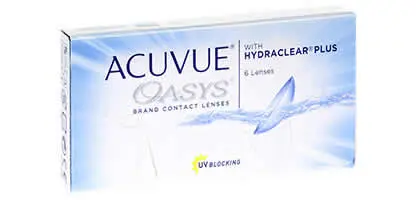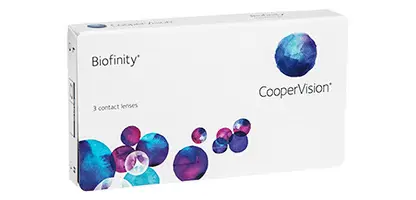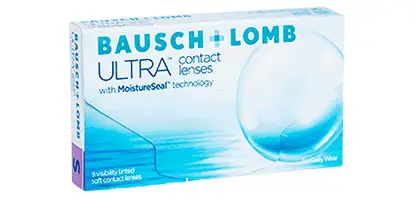Benefits of extended wear contact lenses
Extended wear contact lenses have several advantages. Some of them are mentioned below:
- You can wear these lenses day and night for an extended period, often up to seven days to an entire month (based on the lens type and your optician’s advice)
- Whether you go to bed early or stay up late, extended wear lenses accommodate various sleep schedules, providing flexibility in usage
- These lenses reduce the daily maintenance routine associated with regular lenses, offering a more hassle-free approach to eye care
What are the disadvantages of extended wear contacts?
While extended wear lenses provide the utmost convenience, there can be certain disadvantages to these lenses, which you should keep in mind.
- Extended wear contact lenses pose a higher risk of eye infections compared to daily disposables due to prolonged wearing schedule
- Wearing lenses continuously may limit the amount of oxygen reaching the cornea, leading to complications
- Continuous wear contact lenses can impact the quality of the tear film, leading to dry eyes, blurred vision or discomfort in the eyes
- Extended use of lenses can lead to eye conditions, such as giant papillary conjunctivitis (GPC), where the inner surface of the eyelids become inflamed
Consult your optician to assess whether extended wear lenses are suitable for you. Your optician will help you follow best hygiene practices to reduce risks associated with these contact lenses.
Are extended wear contact lenses safe?
Continuous wear lenses are made from silicone hydrogel material, allowing more oxygen to reach the eye than standard hydrogel lenses.
Whilst the standard hydrogel and soft lens materials are safe to wear throughout the day, they are not suitable to wear overnight when the eyelids are closed. During the 1970s and 1980s, extended wear contact lenses were made from materials with a lower oxygen permeability, which could lead to eye infections.
Today, the upgraded design featuring silicone hydrogel material reduces the risk of eye infections, making them a safe choice to wear, when you follow the care advice given by your optician. In addition, most of our extended wear contact lenses are disposable contacts designed to be replaced after 1-4 weeks. This frequent replacement schedule reduces the build-up of deposits. Frequent replacement of the lenses enhances comfort and safety of wearing an extended wear contact lens, making them a convenient choice.
Can you sleep with extended wear contacts?
Generally, wearing any contact lenses while sleeping is not recommended. Prolonged usage of lenses may decrease the oxygen permeability of lenses and increase the chances of developing eye complications.
During sleep, the eyes produce fewer tears, creating a dry environment that can give rise to lens-related problems. Contact lenses can attract bacteria and debris against the eye, increasing the risks of infection.
Remember, maintaining a proper contact lens care routine is crucial for good eye health. Additionally, you should always consult with your optician if you have any concerns about your lenses, or if you experience a sudden change in vision.
Quick links:
How are contact lenses made?
How to apply and remove your contact lenses?
How to look after your lenses?

 Offers
Offers Account
Account
 Favorite
Favorite
 Basket
Basket

 OFFERS
OFFERS



















